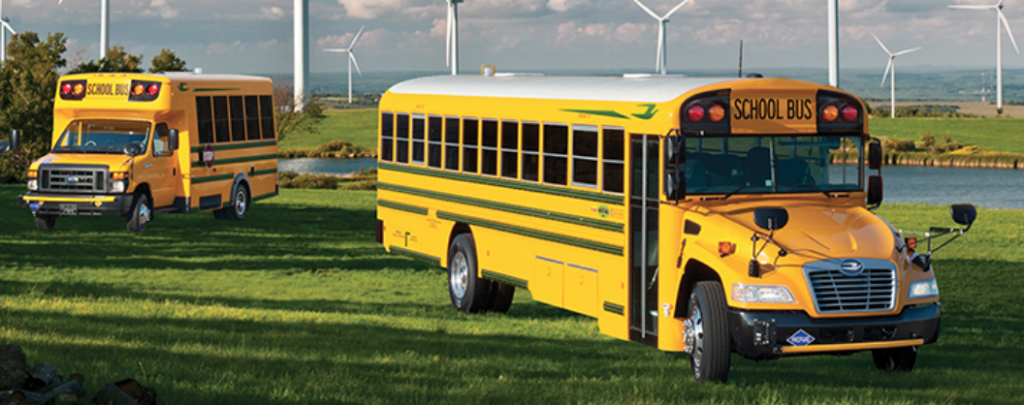Georgia School Bus Fleets Increasingly Turn to Propane
Fulton County School System rolled out a brand-new fleet of 90 Blue Bird propane autogas-fueled school buses equipped with three-point seat belts. It’s the largest fleet of its kind in the state of Georgia.
Noted Sam Ham, executive director of transportation for Fulton County Schools. “…with propane, we expect to save $3,500 in fuel and maintenance costs per bus per year — that’s $315,000 that can be allocated elsewhere, like back in the classrooms.” The 72-passenger propane buses will begin operation in the 2017-2018 school year.
The fleet also marks the 10,000th propane school bus manufactured by Georgia-based Blue Bird Corporation.
Added Phil Horlock, president and CEO of Blue Bird Corporation, “These propane school buses run on clean fuel, reduce emissions transmitted into the air and keep our students even safer with our newest feature, the NextGen Blue Bird Seat.”
Equipped with Ford Motor Company’s 6.8L V10 engine, each Blue Bird Vision Propane school bus is powered by its exclusive ROUSH CleanTech propane fuel system. The propane engine is certified to California Air Resources Board’s (CARB) optional low nitrogen oxide (NOx) level of .05 grams per brake horsepower per hour, making it 75 percent cleaner than the Environmental Protection Agency’s (EPA) current emissions standard, and the cleanest propane school bus on the road.
“Fulton County Schools’ adoption of propane buses demonstrates its commitment to students, community and taxpayers through cleaner air and reduced spending,” said Brian Carney, executive director of school bus and customer success for ROUSH CleanTech. “Because of their low NOx status, propane buses like these will be eligible for funding from the Volkswagen Settlement’s Environmental Mitigation Trust, which will fund clean technology that reduces NOx emissions.”
The school district’s propane buses will lower NOx emissions by thousands of pounds each year compared with the number of diesel buses they replace. Buses fueled by propane emit 80 percent fewer smog-producing hydrocarbons and virtually eliminate particulate matter when compared with conventional diesel.
Category: General Update











